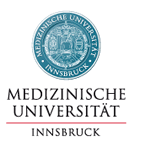Prof G Weiss
No more applications being accepted
Funded PhD Project (Students Worldwide)
About the Project
Lipid homeostasis undergoes subtle chances during infectious diseases, which also reflects the as yet underestimated role of lipids in host pathogen interaction. While lipid homeostasis and cellular lipids composition are of importance for cellular membrane composition, metabolism and immune function of macrophages including phagocytosis or chemotaxis, lipids or its catabolic produces as propionyl-CoA can serve as nutrients or virulence factors for intracellular bacteria. Thus, alterations in lipid homeostasis and lipid anabolic/catabolic pathways in macrophages play decisive role in host-pathogen interaction. We hypothesize that alterations of cellular and systemic lipid metabolism alter the course of infections with the intracellular bacterium Salmonella typhimurium and the extracellular bacterium Escherichia coli by impacting on specific host immune responses. Building up on our expertise in lipid research and on promising results from our group this project will first employ murine and human monocytic cell lines as well as primary cells to study the effects of altered extracellular lipid composition on the course of infection and immune response with the intracellular bacterium S. typhimurium and E.coli using protocols established in our laboratory. Along this line the impact of bacteria on lipid homeostasis and trafficking in monocytes will be analysed. Targeted deletion of critical lipid homeostasis genes in vitro (CRISP9CAS) and in vivo (Alb and LysMCre) as well as specific mouse models of hyperlipidemia will further scrutinize the importance of specific lipid pathways in monocytes for the control of infection and the control of associated immune responses by applying classical analytical and molecular methods along with functional and life imaging analyses of specific host pathogen interactions.
You would also be working on:
Interplay of iron homeostasis and the interleukin-17 pathway in the control of Salmonella and Candida infection.
Iron is not only essential for many biological functions including mitochondrial respiration, replication or oxygen transport for host but also a key nutritional factor for most microbes linked to their pathogenicity and proliferation. Upon infection, subtle changes of iron homeostasis occur with the aim to limit the availability of iron for such pathogens. The iron hormone hepcidin as well as host derived cytokines play important role in this adaptive process. One key component of host response to infections with intracellular bacteria, such as Salmonella, or opportunistic fungi, such as Candida, is the cytokine interleukin-17 (IL-17). Based on experimental evidence from our laboratory we hypothesize that iron availability and IL-17 mediated antimicrobial activity are functionally connected. The first aim is to evaluate the functional connection between IL-17 biology and iron homeostasis previously observed by us and to evaluate the importance of that for the course of systemic infection with Salmonella typhimurium and Candida albicans. We will make also use of wt pathogens and bacteria or Candida with genetic mutations of iron acquisition systems along with the use of pharmacological modifiers of iron trafficking and genetic deletions of iron genes in mice. Using up to date methodology, this project will provide novel insights in the functional interplay between the IL-17 pathways and iron homeostasis for the course of infection with Candida and Salmonella and identify crucial pathways for therapeutic intervention.
Why HOROS?
• Individual supervision and monitoring (students have their individual thesis steering committee)
• A highly structured HOROS-specific educational programme
• Funded research exchange with international laboratories
• Retreats and social activities
• Guaranteed salary as suggested by the Austrian Science Fund for the proposed 3-years
• Health insurance and social benefits
• State-of-the art facilities and resources
Join HOROS: Requirements
The entry requirement is a full study completing degree (Master, Magister, Diploma, MD) in medical science, natural sciences or related disciplines. Students have to show academic excellence, scientific potential, flexibility, motivation and suitability for the research project.
Application
Please submit the following documents by email
(document in PDF format using "lastname_firstname.pdf") to [Email Address Removed]
• CV
• Filled application form
• Master/MD diploma
• Recommendation letter
• Abstract of diploma/master/MD thesis
We can only accept complete applications. Incomplete applications will not be considered!
PhD students are selected on the basis of their application materials and the selected candidates will be invited to a personal interview at Medical University of Innsbruck.
Selection process
• Verification that the application is complete and that the applicant fulfils all requirements
• Obtaining candidate evaluations from referees
• Evaluation by HOROS faculty members and ranking of candidates based on their qualifications, research experience, and future plans
• Invitation of preselected candidates for a hearing and personal job interview in Innsbruck on 05 July 2018 (justifiable expenses for travel and accommodation will be reimbursed)
• Final selection of stipendiates
• Start of work beginning of October

 Continue with Facebook
Continue with Facebook

